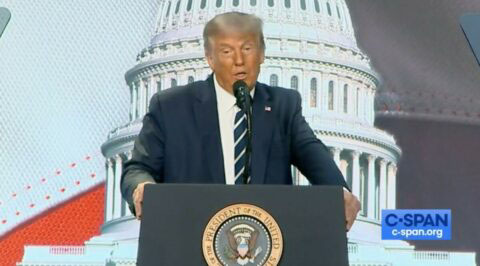by WorldTribune Staff, August 30, 2020
An executive order signed by President Donald Trump on Aug. 24 directs federal agencies to move their offices to Opportunity Zones to spur investment in some of the nation’s poorest neighborhoods, a report said.

There are more than 8,800 low-income communities that have been designated Opportunity Zones by Trump’s Tax Cuts and Jobs Act of 2017.
“The move will apply to all federal agencies and asks that they stop prioritizing city centers and central business districts and instead base themselves in any of the 8,769 low-income communities designated as Opportunity Zones by the Trump administration,” the New York Post reported.
The initiative has driven more than $75 billion in private investment into disadvantaged communities in the two years since it was created, according to a report released on Aug. 24 by the White House Council of Economic Advisers.
Qualified Opportunity Zones encourage private investment in the country’s poorest neighborhoods by providing tax incentives for people who invest in businesses operating in those areas.
Ajit Matthew George, the founder of Second Chances Farm in Wilmington, Delaware, told the Post that the social enterprise that began in the hard-hit community in 2019 was made possible by investors looking to defer their taxes and make a difference.
“We are in one of the most distressed opportunity zones in Delaware,” George said.
Second Chances Farm is a hydroponic indoor farm where formerly incarcerated individuals are given mentorship and re-entry programs and the chance of decent work with health care benefits.
“It’s a community that everyone has forgotten. It’s poor. There are no grocery stores. There’s no business and frankly, it’s been forgotten. But by us being there, we’re giving hope. That is what we also do,” George said.
“We’re there providing jobs, we work seven days a week, we are instead of an abandoned building or an empty building, full of life. The neighborhood appreciates the fact that we are there and committed to that neighborhood.”
Intelligence Brief __________ Replace The Media
